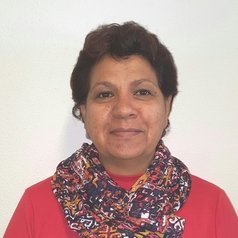
Jocelyn Jones
Research Associate in Justice Health and Social Issues, Curtin University
Jocelyn comes from a nursing background with a Masters in Epidemiology and is currently a PhD candidate with the Telethon Kids Institute Jocelyn has extensive experience in the fields of Aboriginal primary health care services, health research, policy development and justice services. Her areas of research interest are Aboriginal health, child protection and justice, particularly juvenile delinquency and women in prison.
Less ![]()
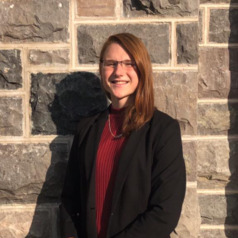
Jocelyn Riet
Ph.D. Candidate in Chemical Engineering, University of Toronto
I'm a researcher with prior experience in polymer membrane design and electrochemistry. I'm currently working for Prof. Jay Werber in collaboration with Prof. Charles De Lannoy on a project funded by Carbon to Sea to design efficient bipolar membranes for electrochemical Ocean Alkalinity Enhancement.
Less ![]()
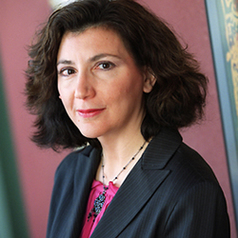
Jocelyne Cesari
Professor of Religion and Politics & Director of Research, Edward Cadbury Centre, University of Birmingham
I joined Birmingham in September 2015 as Professor of Religion and Politics, working primarily in the Edward Cadbury Centre for the Public Understanding of Religion, where I have particular responsibility for oversight of the Centre's research agenda.
My role is to bridge the gap between religious studies and social sciences by investigating the interactions between religion and politics across different traditions and cultures with a particular focus on democracy, secularization and toleration.
In addition to my role at Birmingham, I am Senior Fellow at Georgetown University’s Berkley Center where I direct the ‘Islam in World Politics’ program. I also teach on contemporary Islam at Harvard Divinity School and direct the Harvard interfaculty program ‘Islam in the West’.
My research focuses on religion and international politics, Islam and globalization, Islam and secularism, immigration, and religious pluralism. My most recent book, The Islamic Awakening: Religion, Democracy and Modernity (Cambridge University Press, 2014), is based on three years research on state-Islam relations in Egypt, Turkey, Iraq, Pakistan and Tunisia, conducted when I held the Minerva Chair at the US National War College (2011-2012). My book, When Islam and Democracy Meet: Muslims in Europe and in the United States (2006) is a standard reference text in the study of European Islam and integration of Muslim minorities in secular democracies, and my other recent books include: Why the West Fears Islam: An Exploration of Islam in Western Liberal Democracies (2013).
I also coordinate two major web resources on Islam and politics: Islamopedia Online and Euro-Islam.info.
Less ![]()
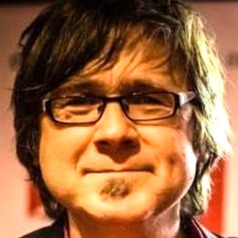
Jochen Kaempf
Associate Professor of Natural Sciences (Oceanography), Flinders University
I am a natural scientist (oceanographer) and lecturer at Flinders University since 1999. One of my research highlights so far was the discovery of the Great Southern Coastal Upwelling System, which is an important nutrient source fueling the marine food chain on the southern shelves of Australia.Apart from my scientific work, I have been a scientific activist on various issues around preservation of marine resources (e.g. oil drilling in the Great Australian Bight).
I have four children and in my free time I enjoy playing music (trombone is my favorite instrument at the moment) and I just published two series of children bedtime stories on Amazon (http://www.amazon.com/Jochen-Kaempf/e/B011N5JZDS).
Less ![]()
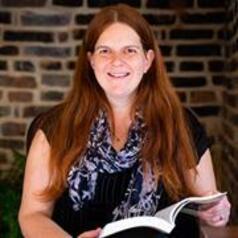
Jodi Gardner
Professor, Law School, University of Auckland, Waipapa Taumata Rau
Professor Jodi Gardner is the Brian Coote Chair in Private Law at the University of Auckland. Her research focuses on the relationship between the private law and social policy. She analyses how the private law interacts with social welfare, including the limitations of doctrinal law in responding to the challenges posed by poverty and inequality. Professor Gardner's research has covered topics including inequality in contract law, vulnerability in tort law, high-cost credit agreements, the impact of austerity measures, debt collection contracts, the effect of technological developments on equality and financial exclusion, and concurrent liability in tort and contract.
Less ![]()
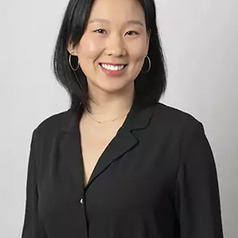
Jodi-Ann Jue Xuan Wang
DPhil (PhD) Candidate in International Development, University of Oxford
Jodi-Ann works at the intersection of sustainable finance policy and climate justice, focusing on national and international just transition policies and the global financial architecture.
Jodi-Ann was a climate policy specialist at the UN-supported Principles for Responsible Investment, working closely with governments and financial institutions on implementing the regulatory frameworks and actions needed to align financial flows with the goals of the Paris agreement. With a background in international development and a focus on South-South climate governance, Jodi-Ann has previously held roles at the Carnegie Endowment for International Peace, The China Global South Project, and the Ghana Ministry of Youth and Sports.
Jodi-Ann is passionate about intergenerational justice and serves as a member of the UN Expert Group on Resource Management and previously negotiated at the G20 as a Canadian youth delegate. Jodi-Ann is a DPhil (PhD) candidate in International Development at the University of Oxford, researching financialisation and intergenerational climate justice.
Less ![]()

Jodie Keane
Senior Research Fellow, International Economic Development Group, ODI
Jodie Keane is a Senior Research Fellow with the International Economic Development Group at ODI. She is an experienced trade economist and project manager who has worked with multiple governments across the developing world to secure their trade policy outcomes.
Jodie began her career in Vietnam and Cambodia working on non-market economy issues for the World Bank in 2005, with a focus on China. Subsequently, she joined the Overseas Development Institute in 2007 as a Research Officer, before progressing to become a Research Fellow in 2012, focusing on trade and development issues between the European Union and African, Caribbean and Pacific countries, as trading relations changed from non-reciprocal to reciprocal regimes.
Between 2015 and 2020, Jodie was an economic adviser within the Trade, Oceans and Natural Resources Directorate of the Commonwealth Secretariat with responsibility for global advocacy on emerging trade issues and the supporting global architecture. She has a PhD in economics from SOAS University of London. She has taught seminars on comparative economic growth in Africa and Asia (SOAS) and more recently on the political economy of trade at the Department of International Relations, London School of Economics. She has published journal articles, book chapters, and edited volumes on global value chains and Least Developed Countries.
Less ![]()
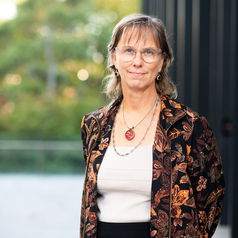
Jodie Kell
Senior Research Officer Conservatorium of Music, University of Sydney
Jodie Kell is a PhD candidate at the Sydney Conservatorium of Music. Her research focuses on the dynamics of gender in popular music. As part of her PhD, she collaborates with the members of the Ripple Effect Band, a First Nation’s all-women’s rock band from Maningrida in the Northern Territory. As lead guitarist, Jodie has performed with the band across Australia and her research aims to draw out the ways in which the band uses contemporary music practice to express cultural knowledge and negotiate agency as women. Jodie works as a Senior Research Officer in the Sydney Office of PARADISEC, the Pacific and Regional Archive for Digital Sources in Endangered Cultures where she co-produces the podcast, Toksave: Culture Talks, a series of interviews with people from across the Pacific who have personal and cultural connections with the archive.
Less ![]()

Jodie Passey
PhD Candidate, Lancaster University
I am a PhD researcher at Lancaster University currently writing my dissertation on the Gothic in musical theatre.
My interests lie primarily in the Gothic, Romanticism, theatre history, contemporary theatre studies, the works of Victor Hugo, the works of the Brontës, and contemporary pop culture.
Less ![]()
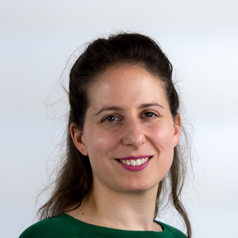
Jodie Pennacchia
Research Fellow in Education Equity, University of Birmingham
Dr Jodie Pennacchia is a Research Fellow in the Education Equity Initiative at The University of Birmingham. Jodie’s research focuses on the educational offer for learners excluded from/not following ‘traditional’, high-status or linear academic trajectories. This has led to a particular interest in how educational inequalities can be created and ameliorated through schools, alternative provision and the further education sector. Jodie has undertaken research funded by The Prince’s Trust, The Department for Education, The Economic and Social Research Council and Teach First.
Less ![]()
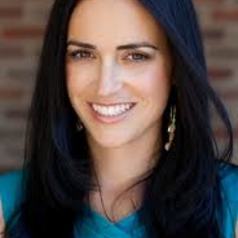
Jody Agius Vallejo
Jody Agius Vallejo is Associate Professor of Sociology at the University of Southern California. She will be associate director of the Center for the Study of Immigrant Integration in Fall 2016. Her research concentrates on the Latino middle class, Latino elites, and patterns of wealth accumulation among Latinos and Chinese Americans . Her book, Barrios to Burbs: The Making of the Mexican American Middle Class (Stanford University Press, 2012) examines mobility mechanisms, socioeconomic incorporation, racial/ethnic and class identities, patterns of giving back to kin and community, and civic engagement among middle-class Mexican Americans. Her second book, in progress, investigates the rise of the contemporary Latino elite. Her research has been funded by The National Science Foundation, The American Association of University Women, The Lusk Center for Real Estate, the American Sociological Association’s Fund for the Advancement of the Discipline, the John Randolph and Dora Haynes Foundation, the UC Davis Center for Poverty Research, and the USC Office of the Provost. She has published in peer-reviewed journals such as Social Forces, Ethnic and Racial Studies, Latino Studies, Social Science Research, City & Community, and Sociological Forum. Her research has received coverage in print, radio, and television including the New York Times, Los Angeles Times, NBC Latino, La Opinión, BBC World News, BBC Mundo, Agencia EFE, ABC’s Vista LA, OC Weekly, NPR, KCRW and KCPP.
Less ![]()
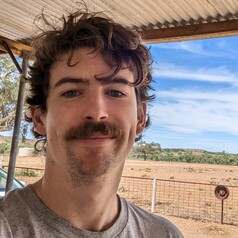
Joe Atkinson
Postdoctoral Researcher, Department of Biology, Aarhus University
Joe is a plant community ecologist interested in using functional traits to improve the conservation and restoration of natural ecosystems.
Less ![]()
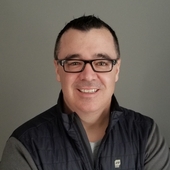
Joe Barrett
Associate Professor -- School Health Policy & Health and Physical Education Pedagogy, Brock University
Less ![]()
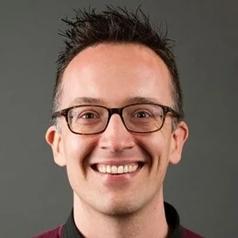
Joe Cable
Senior Lecturer in PR Media and Communications, Media, Swansea University
Jonathan joined Swansea University as Senior Lecturer in PR, Media, and Communications in 2022 where he teaches across a variety of undergraduate and postgraduate modules mainly focusing on public relations, sport, and journalism.
Alongside his teaching Jonathan’s research career originally began by examining protest and its utilisation for pollical communication before shifting focus to concentrate more fully on the world of sport and its relationship with wider society. His work includes: the use of football related clickbait on social media by major media organisations; constructions of nationalism among ‘proper football men’; the newspaper representation of England men’s football international Raheem Sterling compared to Sterling’s self-representation on social media; and fan reactions on social media to suspected racism during a football match among others. Due to these expertise he’s been used as a source for media outlets such as The Athletic, BBC Radio Gloucestershire, and French football website SoFoot.
Jonathan is a Fellow of the Higher Education Academy and is an external examiner at Chester University, and Edge Hill University. Jonathan sits on the editorial board of the Football Collective whose aim is to bring critical debate to football, and is a member of the Football Writers Association. He also acts as an Associate Editor for the Sport Section of the academic journal Cogent Social Sciences.
Less ![]()
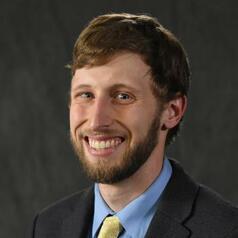
Joe Charbonnet
Assistant Professor of Environmental Engineering, Iowa State University
I am an environmental engineer who protects water from chemical threats and teaches others how to do the same. My research focuses on contaminant fate, transport, and treatment in the environment and engineered water systems. My teaching focuses on aquatic chemistry and technology.
Less ![]()
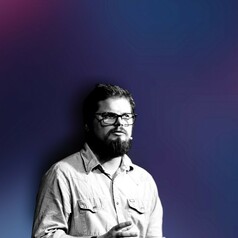
Joe Duggan
PhD Candidate, Fenner School of Environment and Society, Australian National University, Australian National University
Joe is a program manager, researcher and science communicator. As a program manager he has worked with communities and organisations to codevelop engaging science communication content and build capacity in STEM engagement. His research focusses on cross cultural communication and Sense of Place. Joe is also the creator and co-ordinator of ‘Is This How You Feel?’ A project designed to engage the general public with the human side of climate change.
Less ![]()
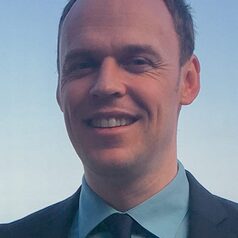
Joe Duncan
Clinical Associate Lecturer, Northern Clinical School and Lecturer, Internal Medicine. Rural Clinical School (Northern Rivers), University of Sydney
Dr Joe (Joseph) Duncan is Clinical Associate Lecturer, Northern Clinical School, and Lecturer, Internal Medicine, Rural Clinical School (Northern Rivers), University of Sydney.
Dr Duncan is a specialist respiratory and sleep physician, and has a particular interest in severe asthma.
Less ![]()
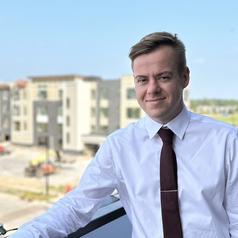
Joe Hollis
PhD student in Rural Sociology and Sustainable Agriculture, Iowa State University
Graduate Research Assistant at Iowa State University. Ph.D student co-majoring in Sustainable Ag and Rural Sociology and minoring in Political Science. My interests include adoption of Artificial Intelligence (AI) and precision agriculture tools, agricultural governance and policy, and conservation management. Previous projects include identifying issues, barriers, and opportunities for blockchain technology to improve transparency and provenance in the Scottish dairy supply chain.
Graduate of both The University of London (BA), and The University of Edinburgh (MSc)
Less ![]()
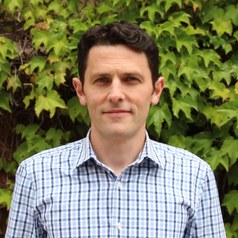
Joe Hurley
Associate Professor, Sustainability and Urban Planning, RMIT University
Dr Hurley is an Associate Professor with the Sustainability and Urban Planning program at RMIT University and member of the Centre for Urban Research. His research focuses on urban planning and urban sustainability issues. Recent research topics include planning systems performance, urban greening, urban sustainability performance assessment, and research-practice exchange. He is deputy lead of the Clean Air and Urban Landscapes hub funded by the the National Environmental Science Program (www.nespurban.edu.au).
Less ![]()
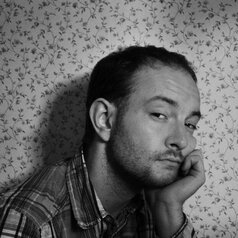
Joe Jackson
Associate Professor in Twentieth-Century and Contemporary English Literature, University of Nottingham
My work faces two of the big, related questions in twenty-first century Britain: how we represent racism and racial justice, and the changing national story of Britain itself. The literary imagination tells us many things about race and nation that statistics or social science research cannot. My approach questions the popular narrative of an increasingly diverse and inclusive Britishness - I look at many things that undermine such a narrative, including the history of racism, the aftermath of the Empire, and the possible disintegration of Britain into its smaller nations.
My research specialism is in late twentieth-century fiction, with a particular emphasis on the Scottish novel, on writing Blackness in post-war Britain, and on Caribbean fiction - areas which have evident, but also surprising and generative, overlaps. I published a book, Writing Black Scotland: Race, Nation and the Devolution of Black Britain (Edinburgh University Press, 2020) where I look at the way the politics of race - in a sense of government policy, in grassroots activism, and in an everyday social context - meet with the peculiar national formations of contemporary Britain. These include the 'master narrative' of Britishness and the stories of Britain's constituent nations like England and Scotland, as well as national affiliations that overspill territorial boundaries.
I also have a research interest in the literary representation of addiction: what literature can tell us both about addiction at the level of the individual people and their experiences, but also what it tells us about society more widely, in history, in attitudes, and as a metaphor for different things.
Less ![]()
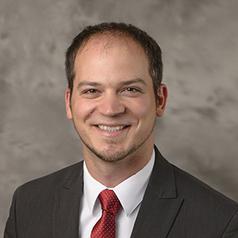
Joe Mazur
Assistant Professor of Economics, Purdue University
Professor Mazur joined the Krannert School of Management at Purdue University in June 2015. He studies industrial organization ("I.O.") and is chiefly interested in the capital investment decisions of firms that behave strategically. Professor Mazur's work in this area combines reduced-form empirical analysis with recent econometric advances in the estimation of dynamic games to study how legal/policy changes and market frictions influence investment incentives. His interests also extend to the analysis of mergers and acquisitions, complementing his professional experience as a corporate financial analyst specializing in industrial M&A.
Less ![]()
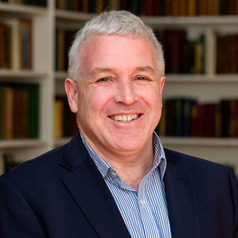
Joe O'Hara
Professor of Education, Dublin City University
Joe O'Hara holds the Chair of Education and is a member of the School of Policy and Practice in the DCU Institute of Education. He is Director of EQI- The Centre for Evaluation, Quality and Inspection and a member of the Centre for Culturally Responsive Evaluation and Assessment at the University of Illinois at Urbana Champaign. Joe O'Hara is a Past President of the Educational Studies Association of Ireland was a member of the The Teaching Council of Ireland from 2012-2016. He was a member of the Board of Directors of the Association for Personal Services Overseas (APSO) from 2002-2004 and represented Ireland on the Council of the European Educational Research Association from 2008 to 2013. Joe O'Hara was Head of the School of Education Studies, DCU from 2010 to 2016. He is a Director and Founding Member of the Irish Evaluation Network and is a member of the Board of the Centre for Talented Youth, Ireland. Joe O'Hara is President of the European Educational Research Association.
Less ![]()
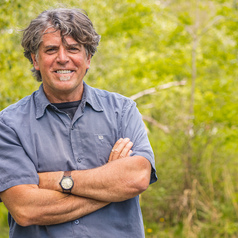
Joe Pavelka
Professor, Department of Health and Physical Education, Mount Royal University
Joe's research focuses on aspects of destination management (both here in Canada and abroad) and marketing and tourism motivation. His past education includes a Bachelor of Arts in Geography (1987) and Honours Bachelors of Outdoor Recreation (1987) both from Lakehead University in Thunder Bay, Ontario. He obtained his Master's in Recreation Administration from the University of Alberta (1990) in Edmonton, and his Doctorate in Geography (2010) from the University of Calgary, studying the resort community evolution from an interdisciplinary approach focusing on amenity migration.
Joe has been teaching in the ETOL program since its inception in 2000. His primary areas of teaching include the three levels of ecotourism courses, tourism marketing, and expedition courses. Another area of teaching focus for him is the area of international field schools. He operates a six-credit ecotourism field school course to Peru each odd year and has run numerous similar field schools to Belize and Mexico in the past.
He has run expeditions with ETOL students in Alberta, British Columbia, the Yukon, and Northwest Territories. Over the years he has managed to gain several outdoor leadership certifications in the areas of wilderness first aid, and canoeing, among others. He embraces a wide range of teaching approaches but admits that he most enjoys being involved with experiential education whether on-campus or some far-off corner of the world.
Less ![]()
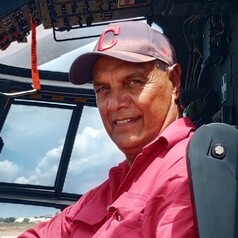
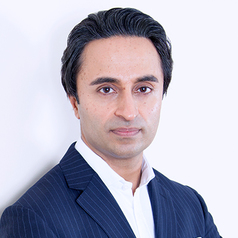
Joe Sekhon
Senior Lecturer in Intellectual Property Law, University of Portsmouth
Awards and Positions of Responsibility
Having completed my academic stage of legal training at the College of Law Guildford I joined Portsmouth Business School to lead the development of its Intellectual Property Law curriculum at both undergraduate and postgraduate levels.
I am member of the European Intellectual Property Teachers' Network and sit on the UK Intellectual Property Offices' Universities Working Group. I have provided extensive mentoring to student and graduate startups through my award winning IP Clinic scheme.
I have also helped the University secure over £100,000 in external grant funding and supervised research in the field of intellectual property up to PhD level.
In recognition of my outputs I have received an outstanding achievement award from the University Vice-Chancellor..
Curriculum Leadership
I am the academic lead for the University's Intellectual Property Law programmes.
I have also held other senior positions at the University including Course Director for the Postgraduate Law and the Non-Executive Director Training Programmes. I have also led the University Business School's widening participation efforts.
Research Interests
Experienced Principal Investigator on Externally Funded Projects with Impact
I have helped the University secure over £100,000 in external grant funding principally from the UK Intellectual Property Office.
£30,000 for an IP Clinic for students and graduates entrepreneurs.
£75,000 for the Creation of a knowledge exchange campus between the universities of Portsmouth, Bournemouth and Southampton as a means of assisting regional SMEs exploit their intellectual property.
£30,000 shortlisted bid in response to an invitation to tender for the IP Enforcement Landscape Review.
Experienced Research Supervisor
I have supervised numerous undergraduate and postgraduate dissertations and projects in the field of intellectual property as well as supervised PhDs.
To date I have supervised three PhD students to completion.
Publications and Conferences
I was recently awarded the Harts Publishing Best Presentation Prize for my conference paper at the 10th Anniversary European Intellectual Property Teachers' Network Conference at the University of Lund, Sweden. My paper examined the use of social media to educate student entrepreneurs about the importance of IP to their startups.
I have had a paper accepted for publication by the Nottingham Law Journal. This paper examines what Dutch and British universities are currently doing to embed intellectual property education in their respective curricula and whether the changing nature of their roles in society, has helped or hindered these universities in their ability to deliver intellectual property education in the form that their student communities desire.
Less ![]()
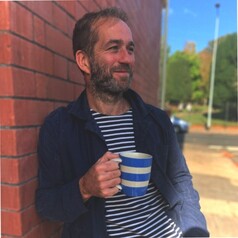
Joe Towns
Senior Lecturer in Sport Broadcasting, Cardiff Metropolitan University
After graduating from Loughbourough and working as a journalist with the South Wales Evening Post, I then spent 2001 to 2016 as a TV Sports producer in the broadcast industry. Primarily working at Sky Sports (2001-2007) and BBC Sport (2007-2016) but have also worked for Eurosport, IMG and BTSport. Highlights include producing live coverage of the Olympic Games 2012 & 2016 & 2024, Commonwealth Games 2010 & 2014, Wimbledon 2008-2016, Open Golf, Six Nations Rugby & FA Cup Football. I was series producer of ScrumV 2010-2016, responsible for ScrumVLive, ScrumV Sunday and Scrum V Six Nations Special. Also created, launched and produced the BBC Wales TV programmes Sports Wales and the annual Welsh Sports Review.
Since moving into academia I have continued to work in broadcast, mostly as an Executive Producer on sports documentaries including Elis James: Football Nation, Together Stronger and the Being Louis Rees Zammit film. This summer I'll be working for the Olympic Broadcast Services at the Paris Olympics.
At Cardiff Metropolitan University I designed and delivered their Sport Broadcast MSc and the Sport Media BSc. I am a Programme Director and Inovation Lead for Media at the School of Sport and Health Sciences. I sit on the boards of the RTS Cymru Wales, the Welsh Sports Hall of Fame and the Media Cymru Skills Advisory Board.
Less ![]()
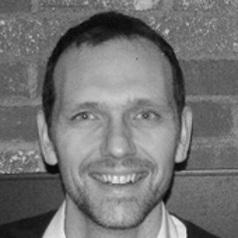
Joe Wright
Professor of Political Science, Penn State
I teach in the Department of Political Science at Pennsylvania State University and currently serve as the co-Director of the Global and International Studies (GLIS) program. I previously held the Jeffrey L. and Sharon D. Hyde Early Career Professorship. I completed my Ph.D. at UCLA . Prior to arriving at Penn State, I was a post-doctoral research associate at Princeton University and a visiting faculty fellow at the University of Notre Dame. In 2016 I was on leave in Cape Town as a visiting scholar at Economic Research Southern Africa (ERSA).
My first book (with Abel Escriba-Folch), Foreign Pressure and the Politics of Autocratic Survival (Oxford University Press, 2015) examines how foreign policy tools destabilize dictatorships. This book won the 2017 Stein Rokkan Prize for Comparative Social Science Research. A second book, with Barbara Geddes and Erica Frantz, is How Dictatorships Work (Cambridge University Press, 2018). A third book, Migration and Democracy: How Remittances Undermine Dictatorships (co-authored with Abel Escriba-Folch and Covadonga Meseguer), will be published by Princeton University Press. A current book project is Personalist Parties and the Death of Democracy. Recent research has also been published in the American Journal of Political Science, Foreign Affairs, International Studies Quarterly, the Journal of East Asian Studies, Journal of Democracy, and the Journal of Politics. My research has been funded by the National Science Foundation and the Minerva Research Initiative.
Less ![]()
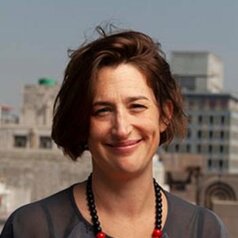
Joel Cabrita
Associate Professor of History, Director of the Center for African Studies, Stanford University
Joel Cabrita is a historian of modern Southern Africa who focuses on Eswatini (formerly Swaziland) and South Africa. Her most recent book is Written Out: The Silencing of Regina Gelana Twala (Ohio University Press, 2023). Twala was an unjustly neglected Black African literary figure in apartheid South Africa and colonial Swaziland (now Eswatini). The book shows that her posthumous obscurity has been no accident, charting how white scholars and politicians used racial and gendered prejudices to erase Twala’s work and claim her uncompensated intellectual labor for themselves.
Cabrita's other publications include The People’s Zion: Southern Africa, the United States and a Transatlantic Faith-Healing Movement (Harvard University Press, 2018) which investigates the convergence of evangelical piety, transnational networks and the rise of industrialized societies in both Southern Africa and North America. The People's Zion was awarded the American Society of Church History's Albert C Outler Prize for 2019 https://churchhistory.org/grants-and-awards/ She is also the co-editor of a volume examining the global dimensions of Christian practice, advocating for a shift away from Western Christianity to the lateral connections connecting southern hemisphere religious practitioners (Relocating World Christianity, Brill, 2017).
Cabrita has a long-standing interest in how Southern Africans used and transformed a range of old and new media forms. Her first book (Text and Authority in the South African Nazaretha Church, Cambridge University Press, 2014) investigates the print culture of a large South African religious organization, while her edited collection (Religion, Media and Marginality in Africa, Ohio University Press, 2018) focuses on the intersection of media, Islam, Christianity and political expression in modern Africa.
Cabrita did her PhD at the University of Cambridge and was subsequently a Junior Research Fellow at Trinity College, Cambridge. Before moving to Stanford, she held permanent posts at SOAS (University of London) and the University of Cambridge. Her research has been recognized by two major early-career research prizes, the British Arts and Humanities Early Career Research Fellowship (2015) and the Philip Leverhulme Prize (2017).
Less ![]()
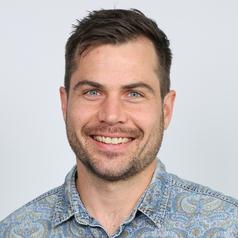
Joel Fuller
Senior Lecturer, Department of Health Sciences, Macquarie University
Dr Joel Fuller is a senior lecturer and qualified physiotherapist and sports scientist in the Faculty of Medicine, Health and Human Sciences at Macquarie University. He has expertise in research areas related to biomechanics, wearable technology, performance enhancement, and injury prevention and management. Joel is passionate about undertaking applied research that can be readily translated to practice. His unique blend of exercise science and clinical science knowledge, skills, and experience allow him to undertake innovative and impactful research at the critical intersection between these research areas.
Less ![]()

Joel Gray
Associate Dean for Teaching and Learning, Sheffield Hallam University
Joel is a researcher, teacher and passionate advocate of Media, Art and Communication at Sheffield Hallam University, and has a leadership role of Associate Dean in the College of Business, Technology and Engineering. His teaching is the subject of Public Relations to Journalism, Media and Marketing students. His research interests include sequential art and visual culture, popular culture and public relations/marketing strategy and campaigns.
Less ![]()
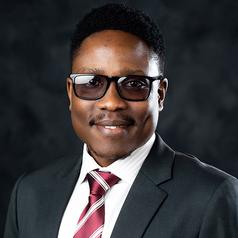
Joel Komakech
Assisstant Professor of Food Science, Nutrition and Health Promotion, Mississippi State University
A Public Health Nutritionist with experience in community nutrition, management of acute malnutrition, nutrition, and WASH programming in complex and emergencies. Enthusiast of research and teaching in Human Nutrition and Public Health; preferences in global nutrition, nutrition in emergencies, public health, and fundamentals of nutrition and human metabolism.
Less ![]()
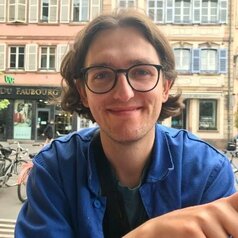
Joel Mead
PhD Candidate in History, University of Liverpool
I joined the Department of History in October 2022 to conduct my doctoral studies under the supervision of Dr Chris Pearson (Department of History), Dr Mark Riley (Department of Geography and Planning) and Dr Sarah Arens (Department of Languages, Culture and Film).
Prior to this, I completed a BA in History at the University of Birmingham and an MA in Modern History at the University of Warwick.
My research interests include:
History of Consumer and Popular Culture
History of Food
History of Medicine
Animal History
Environmental History
Less ![]()
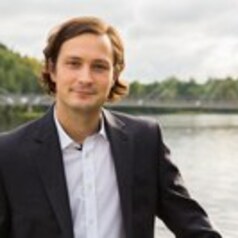
Joel Mero
Associate professor of marketing, University of Jyväskylä
Joel (Järvinen) Mero got his D.Sc. (Econ.) degree in 2016 at Jyväskylä University School of Business and Economics. Mero's research focuses on B2B digital marketing management (the managerial use of digital data and technologies in business markets). He has received the best paper award twice in the world's most prestigious academic B2B marketing journal, Industrial Marketing Management (2017 & 2019).
Mero leads Digital Marketing and Communication research group at JSBE and acts as the director of the international master's program in Digital Marketing and Corporate Communication (DMCC). With a special emphasis on digital marketing in teaching, Mero has designed and executed over 20 different study courses in more than 10 different higher-education institutions at Bachelor, Master, EMBA and Doctoral levels. He has also supervised several completed doctoral theses and dozens of master's theses.
Less ![]()
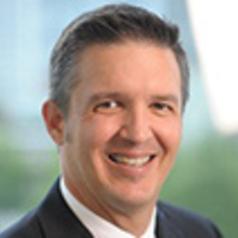
Joel Mier
Lecturer of Marketing, University of Richmond
Joel Mier is a Lecturer of Marketing at the Robins School of Business at the University of Richmond. He received his Doctorate in Business Administration from Georgia State University in 2016. His primary teaching responsibilities at the University of Richmond include teaching the Principles of Marketing and Strategic Marketing courses. Previously, Joel had taught a variety of marketing courses at the School of Business at Virginia Commonwealth University.
Joel has a rich practitioner background in marketing, spanning a wide variety of industries and company life stages. Most recently, he was the Vice President of Marketing of Contactually, a SaaS-based relationship marketing software firm in Washington, D.C. Prior, he was Vice President of Marketing at Genworth, a Fortune 500 global financial services company in Richmond, VA. Joel spent his early career in Silicon Valley at such firms as Gartner (Senior Market Analyst), Adobe (Senior Business Analyst), and Netflix (Director of Marketing).
Less ![]()
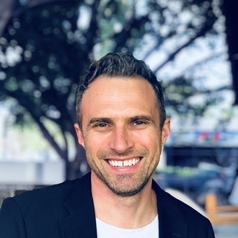
Joel Pearson
Professor of cognitive neuroscience, UNSW Sydney
Joel Pearson is a Psychologist, Neuroscientist and public intellectual working at the forefront of science, innovation and agile science.
Joel started his career studying art and filmmaking at one of Australia’s top fine arts school, Collage of Fine Arts, University of New South Wales. However, he then decided to apply his creative discovery techniques to the scientific mysteries of human consciousness and the complexities of brain. He completed his science PhD in 2 years, while fitting in several around the world trips and invited conference and university talks, alongside several publications.
An internationally recognised leader in human consciousness research, Pearson’s group takes an innovative, agile, first principles approach to developing new methods to measure dimensions of human experience previously thought to be immeasurable. A few examples are the group’s novel methods to measure the human imagination, intuition and hallucinations, using objective, reliable, neuroscientific methods. This work spans from fundamental science to helping individuals in the clinic – translational cognitive neuroscience.
Joel’s research has been recognised with major accolades including the 2009 William James award for the greatest scientific contribution to understanding consciousness. His team’s efforts have been featured in The Huffington Post, The Sydney Morning Herald, The Australian Financial Review, LiveScience, Discovery Channel, BBC and a host of other major media outlets.
Recognising that the most exciting and surprising scientific discoveries of the 21st century will likely involve a high number of accidental breakthroughs and large amounts of rapid iterative pilot testing. Joel is a passionate proponent of high-risk discovery science and has developed a method called Agile Science, a practical guide to both practicing and reporting scientific discoveries – the ‘Lean Startup’ for the world of science.
Joel takes a multidisciplinary agile approach to running his lab, bringing in staff and students from art, architecture, mathematics, computer science, psychology, neuroscience and medical imaging. The group studies many different exciting and cutting-edge topics, from new methods to map the human brain, treating mental illness, how to boost the human imagination and decision-making, to cognitive biases in financial risk assessment.
A prolific writer and speaker, Joel sits at the intersection between science, innovation and art.
Less ![]()
- Market Data





















